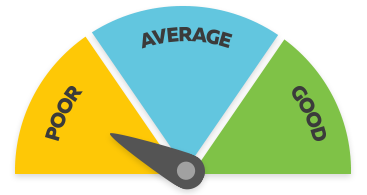Naturopath
Kaihaumanu Hauora Aro Tini
Naturopaths diagnose and treat health problems with nutritional and lifestyle advice, herbal medicines and natural therapies.
Pay
Naturopaths usually earn
$49K-$120K per year
Source: Naturopaths and Medical Herbalists of New Zealand, 2021.
Job opportunities
Pay
Pay for naturopaths varies depending on the number of hours they work, where they work, and how many clients they have.
- Naturopaths usually earn between minimum wage and $120,000 a year.
Source: Naturopaths and Medical Herbalists of New Zealand, 2021.
- PAYE.net.nz website - use this calculator to convert pay and salary information
- Employment New Zealand website - information about minimum wage rates
(This information is a guide only. Find out more about the sources of our pay information)
What you will do
Naturopaths may do some or all of the following:
- assess patients for emotional or physical problems
- recommend treatment plans
- provide dietary and lifestyle advice and guidelines
- provide physical treatments such as massage or acupuncture
- counsel patients
- check and document patients' progress through treatment plans
- refer patients to other health professionals or specialists if required.
Skills and knowledge
Naturopaths need to have knowledge of:
- naturopathic medicine, physical therapies and counselling techniques
- nutrition and dietary theory and practice
- the human body and how it functions
- the concepts of holistic health, wellbeing and a healthy lifestyle.
Working conditions
Naturopaths:
- usually work regular business hours, but may work evenings and weekends when required, or be on call
- work for health industry companies, natural health clinics, or in private practices
- may travel locally to meet patients.
What's the job really like?

Elle Eastwood
Naturopath
How did you get into a career in naturopathy?
"I had a childhood illness that was treated holistically, which led to enormous improvements, and I discovered how incredible naturopathic medicine could be.
"Inspired by my experience, I went on to complete a Bachelor of Health Science in naturopathy and now I run my own clinic."
What does a typical day look like for you as a naturopath?
"I consult part time alongside being a mum. Two days a week I see clients – either in my clinic or virtually via Zoom.
"New clients receive a consultation and then a treatment plan, which addresses health goals and includes dietary, lifestyle, and herbal or nutritional recommendations.
"I check in with clients every three to six weeks for a follow-up consultation and assess their progress and make any necessary changes. I also do a lot of admin, marketing, and staying on top of my professional development."
What do you like about being a naturopath?
"I really enjoy helping people achieve their health goals. I also love controlling my own hours. I’m my own boss and it’s great to have flexibility with a young family.
"I'm also constantly learning new things and I get a lot of personal job satisfaction."
Entry requirements
One degree is available in naturopathy:
- Bachelor of Natural Medicine
This certificate can provide a supportive pathway into the degree:
- Certificate in Study & Employment Pathways – Natural Medicine (Level 4)
For information see:
- South Pacific College of Natural Medicine website - information about the Bachelor of Natural Medicine
- South Pacific College of Natural Medicine website - information about the Certificate in Study & Employment Pathways
The Vulnerable Children Act 2014 means that if you have certain serious convictions, you can’t be employed in a role where you are responsible for, or work alone with, children.
Secondary education
NCEA Level 3 is required to enter tertiary training. Useful subjects include chemistry, biology, English, maths and health education.
Additional requirements for specialist roles:
Chinese Medicine Naturopath
To become a Chinese medicine naturopath it is recommended you have one of the following:
- Diploma of Chinese Herbal Medicine
- Bachelor of Health Science – Chinese Medicine: Acupuncture and Herbal Medicine (Level 7).
- New Zealand School of Acupuncture and Traditional Chinese Medicine website - qualifications in Chinese herbal medicine
- New Zealand College of Chinese Medicine website - Bachelor of Health Science (Chinese Medicine)
Nutrition Naturopath
To become a nutrition naturopath it is recommended you have one of the following:
- Advanced Diploma in Health Sciences – Naturopathy and Nutrition (Level 7)
- Bachelor of Natural Medicine
- Bachelor of Naturopathic and Herbal Medicine.
Kairongoā/Rongoā Māori practitioner
To become a rongoā Māori practitioner, the Heke Rongoā/Diploma of Māori Holistic Wellbeing can help you get started:
Personal requirements
Naturopaths need to be:
- good at written and verbal communication
- good listeners
- well organised
- empathetic
- able to relate to people from a range of cultures and backgrounds.
Useful experience
Useful experience for naturopaths includes:
- nursing
- counselling
- work in health food shops
- preparing medicinal food and dietary plans
- health industry or clinical work.
Physical requirements
Naturopaths need to be reasonably fit and healthy. Naturopaths who do massage need to have strong arms.
Registration
Naturopaths may choose to register with the following associations:
- Clinical Nutrition Association (CNA)
- Natural Health Practitioners New Zealand (NHPNZ)
- Naturopaths & Medical Herbalists of New Zealand (NMHNZ)
- New Zealand Association of Medical Herbalists (NZAMH)
- New Zealand Natural Medicine Association (NZNMA).
Find out more about training
- Naturopathic College of New Zealand
- 0800 759 0218 - www.ncnz.co.nz
- New Zealand Association of Medical Herbalists
- admin@nzamh.org.nz - nzamh.org.nz/about-us/herbal-education/
What are the chances of getting a job?
Chances of getting full-time work as a naturopath are poor as there are limited clients and high competition for them.
Around 70% of naturopaths are self-employed and develop a customer base through advertising in their local community and online.
According to the Census, 597 naturopaths worked in New Zealand in 2018.
Demand for naturopaths may increase
Demand for naturopaths may improve due to increased demand for natural health products such as medicine, cosmetics, vitamins, food and drinks.
Naturopaths may:
- be hired as consultants for the making of natural health products
- develop and sell their own products
- work as consultants in new retail stores.
Small range of employers
Naturopaths who are not self-employed may work for:
- hospices and nursing homes
- natural health care clinics
- retail outlets
- health supplement and cosmetic companies
- education institutions as teachers.
Sources
- James, L, founder of Ideal Health and Naturopath, Careers New Zealand interview, August 2016.
- Jury, L, registrar, NZ Society of Naturopaths, Careers New Zealand interview, July 2016.
- Ministry of Business, Innovation and Employment, '2006-2013 Occupation Data' (prepared for Careers New Zealand), 2016.
- Naturopathic College of New Zealand, 'Natural Medicine in New Zealand infographic', accessed August 2016, (www.ncnz.co.nz).
- Norton, M, 'Natural Health Industry Sets Sights on Exporting Products', March 2015, Pharmacy Today, (www.pharmacytoday.co.nz).
- Stats NZ, '2018 Census Data', 2019.
- Wadey, R, 'Comvita and the Business of Making Honey', June 2016, (www.viva.co.nz).
(This information is a guide only. Find out more about the sources of our job opportunities information)
Progression and specialisations
Naturopaths can specialise in a number of roles, including:
- Chinese medicine naturopath
- Chinese medicine naturopaths provide healing through traditional Chinese medicine and physical remedies such as cupping and acupuncture.
- Kairongoā/Rongoā Māori practitioner
- Rongoā practitioners provide healing through a holistic approach that can include rongoā rākau (Māori herbal medicine), physical therapy such as mirimiri, and spiritual work.
- Nutrition
- Naturopaths specialising in nutrition provide clients with nutritional advice on eating and natural supplements as well as exercise.
Last updated 28 March 2025


